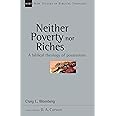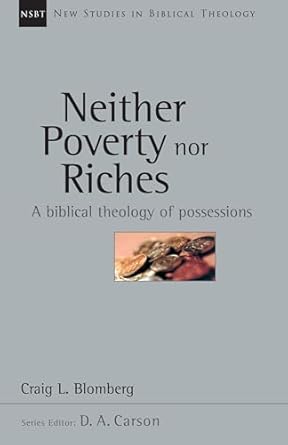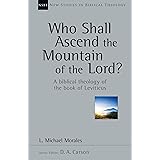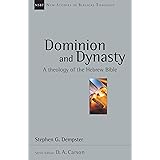
Enjoy fast, free delivery, exclusive deals, and award-winning movies & TV shows with Prime
Try Prime
and start saving today with fast, free delivery
Amazon Prime includes:
Fast, FREE Delivery is available to Prime members. To join, select "Try Amazon Prime and start saving today with Fast, FREE Delivery" below the Add to Cart button.
Amazon Prime members enjoy:- Cardmembers earn 5% Back at Amazon.com with a Prime Credit Card.
- Unlimited Free Two-Day Delivery
- Streaming of thousands of movies and TV shows with limited ads on Prime Video.
- A Kindle book to borrow for free each month - with no due dates
- Listen to over 2 million songs and hundreds of playlists
- Unlimited photo storage with anywhere access
Important: Your credit card will NOT be charged when you start your free trial or if you cancel during the trial period. If you're happy with Amazon Prime, do nothing. At the end of the free trial, your membership will automatically upgrade to a monthly membership.
Buy new:
-34% $19.79$19.79
Ships from: Amazon Sold by: MONROJ
Save with Used - Acceptable
$14.90$14.90
Ships from: Amazon Sold by: -OnTimeBooks-

Download the free Kindle app and start reading Kindle books instantly on your smartphone, tablet, or computer - no Kindle device required.
Read instantly on your browser with Kindle for Web.
Using your mobile phone camera - scan the code below and download the Kindle app.

OK
Neither Poverty nor Riches: A Biblical Theology of Possessions (Volume 7) (New Studies in Biblical Theology) Paperback – January 1, 2000
Purchase options and add-ons
Give me neither poverty nor riches, but give me only my daily bread. (Proverbs 30:8) One of the most difficult questions facing Christians today is that of the proper attitude toward possessions. In wealthy nations such as Britain and the USA, individuals accumulate much and yet are daily exposed to the plight of the poor, whether the homeless on their own city streets or starving children on their TV screens. What action should we take on behalf of the poor? What should we do with our own possessions? In this New Studies in Biblical Theology volume, Craig Blomberg asks what the Bible has to say about these issues. Avoiding easy answers, he instead seeks a comprehensive biblical theology of possessions. And so he begins with the groundwork laid by the Old Testament and the ideas developed in the intertestamental period, then draws out what the whole New Testament has to say on the subject, and finally offers conclusions and applications relevant to our contemporary world. Neither Poverty Nor Riches is one book that all should read who are concerned with issues of poverty and wealth. Addressing key issues in biblical theology, the works comprising New Studies in Biblical Theology are creative attempts to help Christians better understand their Bibles. The NSBT series is edited by D. A. Carson, aiming to simultaneously instruct and to edify, to interact with current scholarship and to point the way ahead.
- Print length300 pages
- LanguageEnglish
- PublisherIVP Academic
- Publication dateJanuary 1, 2000
- Dimensions5.5 x 0.7 x 8.5 inches
- ISBN-100830826076
- ISBN-13978-0830826070
The Amazon Book Review
Book recommendations, author interviews, editors' picks, and more. Read it now
Frequently bought together

Similar items that may ship from close to you
From the brand

Editorial Reviews
About the Author
Craig L. Blomberg (Ph.D., Aberdeen) is Distinguished Professor of New Testament at Denver Seminary. His books include Jesus and the Gospels: An Introduction and Survey, The Historical Reliability of the Gospels and Making Sense of the New Testament: Three Crucial Questions.
D. A. Carson is research professor of New Testament at Trinity Evangelical Divinity School in Deerfield, Illinois.
Product details
- Publisher : IVP Academic (January 1, 2000)
- Language : English
- Paperback : 300 pages
- ISBN-10 : 0830826076
- ISBN-13 : 978-0830826070
- Item Weight : 13.6 ounces
- Dimensions : 5.5 x 0.7 x 8.5 inches
- Best Sellers Rank: #192,262 in Books (See Top 100 in Books)
- #95 in Christian Stewardship (Books)
- #202 in Christian Business & Professional Growth
- #211 in Ethics in Christian Theology
- Customer Reviews:
About the author

Craig L. Blomberg is distinguished professor of New Testament at Denver Seminary. He holds a Ph.D. from the University of Aberdeen, Scotland. He is the author, co-author or co-editor of fifteen books and more than eighty articles in journals or multi-author works. A recurring topic of interest in his writings is the historical reliability of the Scriptures. Craig and his wife Fran have two daughters and reside in Centennial, Colorado.
Customer reviews
Customer Reviews, including Product Star Ratings help customers to learn more about the product and decide whether it is the right product for them.
To calculate the overall star rating and percentage breakdown by star, we don’t use a simple average. Instead, our system considers things like how recent a review is and if the reviewer bought the item on Amazon. It also analyzed reviews to verify trustworthiness.
Learn more how customers reviews work on Amazon-
Top reviews
Top reviews from the United States
There was a problem filtering reviews right now. Please try again later.
Blomberg divides the Old Testament study into Torah, the Prophets and the Poetry or Wisdom literatures, where the principle he outlined in the first chapter is specifically applicable, namely, the principles of the original texts can be practiced in changed contexts. This is important to note because "the closer the situation in any given portion of our contemporary world corresponds to the features, in this case the socio-economic features, of the world behind any given biblical instruction, the more straightforwardly one can transfer the principles of those texts to our modern age. The less the correspondence, the higher one has to move up the ladder of abstraction to look for broader principles that may transcend the uniqueness of specific situations" (p.30). Those embracing the prosperity gospel and liberation theology would do well to reflect on this since they mistakenly apply the Old Testament contexts that lead to some Old-Testament views, such as material blessings for obedience. But even with the abundance that God may bless someone with, Blomberg comments, "One can hardly claim that God's people were free to enjoy unbridled prosperity from their material resources" (p.47). It is sobering to note that when pro-rated annually, all the offerings instituted in the Old Testament added up to 23.3% `tithe' (p.46), that leads to the conclusion that tithing in a 10% sense shouldn't be the rule but something to start with, with the ultimate goal of the so-called graduated tithe for contemporary Christian stewardship (p.248).
The study of the inter-testament documents, though I love the lessons, needs to be digested with caution since some teachings might be potentially heretical. For example, consider the impression that almsgiving atones for sins, "For almsgiving delivers from death and it will purge away every sin. Those who perform deeds of charity and of righteousness will have the fullness of live (quoting Tobit 12:8-9 on p.94). Other examples that need to be treated with care include some verses in the book of Enoch that seem to equate the rich and the oppressor, and the treaty of Shem that links fortunes entirely to the signs of the zodiac (p.95). Here I believe Blomberg assumes the readers are able to discern what is to be imitated and what is false since he rarely points out the fallacy of the verses he quoted.
The New Testament studies, the choicest meat of the book, consist of the parables of Jesus, the gospels, Paul's general, prison and pastoral epistles, and other epistles, where a particular attention is given to James, the treatment of which is combined with Acts; among others like Hebrews, Jude, Peter, and John, which includes Revelation. There are so many precious lessons to learn here. I dog-eared so many pages and wrote so many side notes in these sections that I was worried that I dog-eared every page because the studies are simply too good not to be marked, re-read and studied all over again. Rather than writing the highlights from these sections that would cause this review to take up several pages, I would invite the readers to dig-in and enjoy the feast for themselves instead.
There are two additional reasons why I appreciate the entire study. First, Biblical principles on stewardship are pointed out carefully with numerous references and sincerity avoiding harsh and uncharitable language. Consider for example, in the last point in last chapter when summarizing the study, "Above all, the Bible's teaching about material possessions is inextricably intertwined with more spiritual matters. No ungodly poor people are ever exalted as models for emulation. No godly rich people, who are generous and compassionate in the use of their wealth, are ever condemned. But in a remarkable number of instances throughout history, poverty and piety have been found hand in hand, as have wealth and godlessness. There is no inherent connection between the items in either pair, just recurring trends" (p.246). Second, Blomberg is also sincere and realistic when using himself and his family to show he talks the walk and walks the talk. He goes to great details on how he applies the principles of generosity and moderation taught in the Bible to his family and ministry. His honesty is displayed when he wrote, "Nor is anything I have written meant to suggest that I believe savings, investments, insurance or pension schemes are wrong. I have all these and hope their earnings continue to grow. While I know of others who, for a variety of ministry-related reasons, have adopted a much more radically simple lifestyle, and while I admire and approve of their approaches, God has not yet led me to follow them, even after considerable discussion, prayer and soul-searching. In short, I feel I have a very rewarding life, materially speaking, and am not a particularly exemplary model of sacrificial giving (p. 249).
In recommending "Neither Poverty Nor Riches," I can not find better words but agree with Prof. D.A. Carson's comment on this book,
"On a subject as sensitive as this one, it is extraordinarily rare to find balance and prophetic voice rolled up in one. In my view, this is now the best book on the entire subject,"
though the difference between he and I is that I have not read much literature on material possession. Nevertheless, it has been a great joy and blessing to find a book like this to learn from.
As Carson mentioned as the series editor, an amazing effort to survey the biblical material, clearly succeeding in presenting a quick and balanced view.
Top reviews from other countries
Many people in the Church have ideas about money, but how many of those ideas are actually founded on principles developed through a solid biblical theology of the scriptures? This is an important issue, especially for Christians living in affluent societies such as, Canada, USA and much of Europe. In my city for example, I often struggle as I drive through downtown Ottawa and see the many homeless people with nothing while I drive by them in my nice car with heated seats, drinking a hot coffee, while checking email on my iPhone 5 etc... As a Christian, what actions should I take on behalf of the poor in my city? Blomberg masterfully answers these questions and many more through the lens of a global view of scripture.
Blomberg presents the subject of possession with a biblical and pastoral balance. The title of the book is borrowed from Proverbs 30:8 “Give me neither poverty nor riches.” As Blomberg notes the Bible mandates an avoidance of extreme riches, or extreme poverty. Blomberg’s point is clarified by verse 9; “Lest I be full and deny you and say, “who is the Lord?” Or lest I be poor and steal and profane the name of God.” Therefore, poverty or riches are not always bad. One can be exceptionally poor yet pious, or exceptional rich yet godly; the emphasis of condemnation is the impious impoverished and the unrighteous rich.
The introduction is much more than just an introduction. Blomberg sets the stage of the statistics regarding poverty. He brings out statistics that continue to elevate our wealth as North Americans.
• At least one billion out of the more than five billion people in our world fall below any reasonable poverty line.
• Two million children die every year from preventable infectious diseases.
• A survey of expenditures in the late 80s and 90s demonstrated that Americans spent annually twice as much on cut flowers as on overseas Protestant ministries, twice as much on women’s sheer hosiery, one and a half times as much on video games, one and a half times as much on pinball machines, slightly more on the lawn industry, about five times as much on pets, almost one and a half times on chewing gum, almost three times as much on swimming pools, approximately seven times as much on sweet, seventeen times as much on diets and diet related products, twenty times as much on sporting activities, approximately twenty-six times as much on soft drinks, and a staggering 140 times as much on legalized gambling
• And constantly, Americans with lower incomes give more of their earnings than those with higher incomes.
There is a real shock value to these statistics. I believe it shows us where our heart is. (Matthew 6:21) In this volume, Blomberg attempts to ground our Theology of Money on the whole console of God, and not on pop-culture teachings. In the introductions he also addresses the Issue of the prosperity Gospel. Blomberg explains that his type of teaching can only be developed by ripping text after text from its context and making applications that would seem ludicrous in most two-thirds world settings (page 25). He quotes John Stott saying, “We have to have the courage to reject the health-and-wealth Gospel absolutely, it is a false Gospel.”(Page 25)
For the rest of the book Blomberg faithfully and diligently works through all of the books of the Bible pulling on what they say about Material Possessions. His summary of the Torah is worth sharing, he says, “God created the material world wholly good but sin has corrupted it along with humanity. In the first stages of God’s plan for redeeming his creation, he chose a man (Abram) from whose family would come a uniquely chosen nation (Israel) which was to be a blessing to the entire world. (page 55) Blomberg continues through rest of the books of the Old Testament, drawing out truths that many people may not notice during a reading of the text.
The largest section of teaching is devoted to the New Testament. He surveys the teachings of Jesus on money and says, “in light of the larger pattern of Jesus’ teaching which we will observe, we dare not under estimate the potential deceitfulness of wealth to keep people out of the kingdom.” (Page 115) Jesus teaching of money is clear. The good news of the Gospel is consistently holistic. Materiel sustenance with spiritual salvation proves meaningless, but the liberation that God in Christ grants regularly included a physical or material dimension to it. Blomberg says, “It goes too far to say that one cannot be rich and a disciple of Jesus, but what never appears in the Gospels are well-to-do followers of Jesus who are not simultaneously generous in almsgiving and in divesting themselves of surplus wealth for the sake of those in need.
The most helpful sections on the book for me personally were his discussions on tithing. Having really started studying and reading in the past couple years, I have some of my views confronted by the truths of scripture. I have realized that things I have been taught have been based off of poor interpretation of scripture, or traditionally held beliefs with little or no scriptural basis. I had been taught in this regard about tithing and material possessions. This book challenged a lot of my thinking, but it did not leave my hanging, because through scripture it brought me answers. In the end, this is a fabulous book and I would recommend it to anyone interested in this subject. It is a must for anyone serving in ministry, especially those who preach or teach.
















































